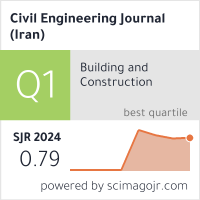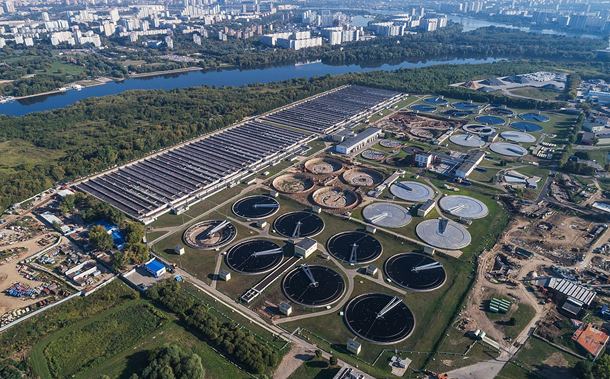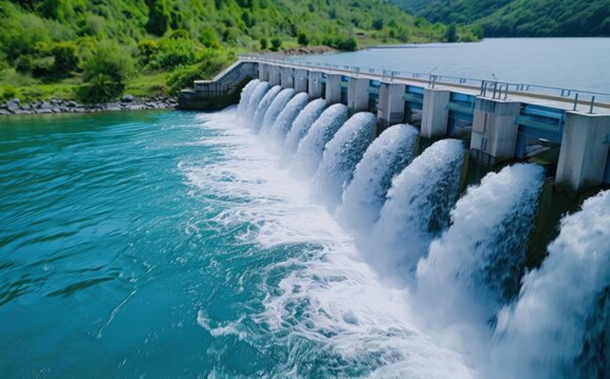Hydrochemical Characterisation of Groundwater Quality: Merdja Plain (Tebessa Town, Algeria)
Downloads
The objective of this work is to evaluate the physico-chemical quality of the groundwater of the Merdja plain and to determine the sources of mineralization. This quality is influenced by several environmental and anthropogenic factors such as geological context, climate, precipitation and interaction between groundwater and aquifers and human activities. A Principal Component Analysis (PCA) on samples taken from several wells spread over the entire Tebessa plain (Merdja) allowed us to detect two axes that explain 73.4% of the information. The first axis describes the variables related to mineralisation and the second one describes those related to agricultural activity. Multidimensional Positioning (MDS) confirmed the interaction of physico-chemical parameters between them and their influence on groundwater quality by highlighting three groups of wells according to their physico-chemical characteristics, particularly those containing high concentrations of nitrates. This contamination is mainly the result of spreading the fertilisers and wastes that are dumped into the plain without treatment. Salinization is the result of long-term interactions between groundwater and geological formations.
Downloads
[2] Kowalski, W. M., M. Hamimed, and A. Pharisat. "Les étapes d'effondrement des grabens dans les confins algéro-tunisiens." Bulletin du Service géologique de l'Algérie 13, no. 2 (2002): 131-152.
[3] Fehdi, Chemseddine, Abdelkader Rouabhia, Abdelbasset Mechai, Manel Debabza, Khalida Abla, and Kostas Voudouris. "Hydrochemical and Microbiological Quality of Groundwater in the Merdja Area, Tébessa, North-East of Algeria.” Applied Water Science 6, no. 1 (June 10, 2014): 47–55. doi:10.1007/s13201-014-0209-3.
[4] Rouabhia, Abdelkader, Fethi Baali, and Chemseddinne Fehdi. "Impact of Agricultural Activity and Lithology on Groundwater Quality in the Merdja Area, Tebessa, Algeria.” Arabian Journal of Geosciences 3, no. 3 (August 27, 2009): 307–318. doi:10.1007/s12517-009-0087-4.
[5] Legrioui, Radhia, Fethi Baali, Ilhem Abdeslam, Amor Hamad, Philippe Audra, Didier Cailhol, and Stéphane Jaillet. "Hydrochemical and Isotopic Characterization of Karst Aquifer in the Region of Tebessa, Northeast Algeria.” Eurokarst 2018, Besançon (April 10, 2019): 223–231. doi:10.1007/978-3-030-14015-1_25.
[6] Gouaidia, Layachi, Omar Guefaifia, Abderahmane Boudoukha, Mohamed LaidHemila, and Claude Martin. "í‰valuation de La Salinité Des Eaux Souterraines Utilisées En Irrigation et Risques de Dégradation Des Sols: Exemple de La Plaine de Meskiana (Nord-Est Algérien).” Physio-Géo no. Volume 6 (February 26, 2012): 141–160. doi:10.4000/physio-geo.2632.
[7] Zereg S, Boudoukha A, Benaabidate L (2018) Impacts of natural conditions and a Zereg, Salah, Abderrahmane Boudoukha, and Lahcen Benaabidate. "Impacts of Natural Conditions and Anthropogenic Activities on Groundwater Quality in Tebessa Plain, Algeria.” Sustainable Environment Research 28, no. 6 (November 2018): 340–349. doi:10.1016/j.serj.2018.05.003.
[8] Mishra, A. "Assessment of Water Quality Using Principal Component Analysis: A Case Study of the River Ganges.” Journal of Water Chemistry and Technology 32, no. 4 (August 2010): 227–234. doi:10.3103/s1063455x10040077.
[9] González, Soledad Oliva, Cesar A. Almeida, Sylvia Quintar, Miguel A. Mallea, and Patricia S. González. "Application of Multivariate Statistical Techniques to Evaluate Organic Pollution on a River in Argentina.” Ambiente e Agua - An Interdisciplinary Journal of Applied Science 6, no. 3 (December 31, 2011): 27–42. doi:10.4136/ambi-agua.696.
[10] Johnson, Glenn W., Robert Ehrlich, William Full, and Scott Ramos. "Principal Components Analysis and Receptor Models in Environmental Forensics.” Introduction to Environmental Forensics (2007): 207–272. doi:10.1016/b978-012369522-2/50008-7.
[11] Zand, Martin, Jiong Wang, and Shannon Hilchey. "Graphical Representation of Proximity Measures for Multidimensional Data.” The Mathematica Journal 17 (2015). doi:10.3888/tmj.17-7.
[12] Rodier, Jean, Ch Geoffray, and L. Rodi. L'analyse de l'eau: eaux naturelles, eaux résiduaires, eau de mer: chimie, physico-chimie, bactériologie, biologie. Dunod, 1975.
[13] Wu, Mei-Lin, You-Shao Wang, Jun-De Dong, Cui-Ci Sun, Yu-Tu Wang, Fu-Lin Sun, and Hao Cheng. "Investigation of Spatial and Temporal Trends in Water Quality in Daya Bay, South China Sea.” International Journal of Environmental Research and Public Health 8, no. 6 (June 22, 2011): 2352–2365. doi:10.3390/ijerph8062352.
[14] Chaí¯b, Nadjla, and Boudjéma Samraoui. "í‰valuation de la qualité physico-chimique des eaux de l'oued Kébir-Est et de ses principaux affluents (Nord-Est algérien)." Science et changements planétaires/Sécheresse 22, no. 3 (2011): 171-177. doi:10.1684/sec.2011.0309.
[15] Kassahun, Yared, and Tesfu Kebedee. "Application of Principal Component Analysis in Surface Water Quality Monitoring.” Principal Component Analysis - Engineering Applications (March 7, 2012). doi:10.5772/38049.
[16] Mahapatra, S. S., Mrutyunjaya Sahu, R. K. Patel, and Biranchi Narayan Panda. "Prediction of Water Quality Using Principal Component Analysis.” Water Quality, Exposure and Health 4, no. 2 (May 4, 2012): 93–104. doi:10.1007/s12403-012-0068-9.
[17] Kruskal, J. B. "Multidimensional Scaling by Optimizing Goodness of Fit to a Nonmetric Hypothesis.” Psychometrika 29, no. 1 (March 1964): 1–27. doi:10.1007/bf02289565.
[18] Manolova, Agata. "Catégorisation par mesures de dissimilitude et caractérisation d'images en multi échelle." PhD diss., 2011.
[19] Zhang, Jin. Visualization for information retrieval. Vol. 23. Springer Science & Business Media, 2007.
[20] Faye, P., P. Courcoux, M. Qannari, and A. Giboreau. "Méthodes de traitement statistique des données issues d'une épreuve de tri libre." Revue Modulad 43 (2011): 1-24.
[21] Yerel, Suheyla, and Huseyin Ankara. "Assessment of Water Quality Parameters by Using the Multidimensional Scaling Analysis.” E-Journal of Chemistry 7, no. 4 (2010): 1274–1277. doi:10.1155/2010/868724.
[22] Vargas-González, Héctor Hugo, José Alfredo Arreola-Lizárraga, Renato Arturo Mendoza-Salgado, Lía Celina Méndez-Rodríguez, Carlos Hernando Lechuga-Deveze, Gustavo Padilla-Arredondo, and Miguel Cordoba-Matson. "Effects of Sewage Discharge on Trophic State and Water Quality in a Coastal Ecosystem of the Gulf of California.” The Scientific World Journal 2014 (2014): 1–7. doi:10.1155/2014/618054.
[23] Bouzid-Lagha, Souaad, and Belkheir Djelita. "Study of eutrophication in the Hamman Boughrara Reservoir (Wilaya de Tlemcen, Algeria)." Hydrological Sciences Journal 57, no. 1 (2012): 186-201. doi:10.1080/02626667.2011.634417.
- Authors retain all copyrights. It is noticeable that authors will not be forced to sign any copyright transfer agreements.
- This work (including HTML and PDF Files) is licensed under a Creative Commons Attribution 4.0 International License.![]()















